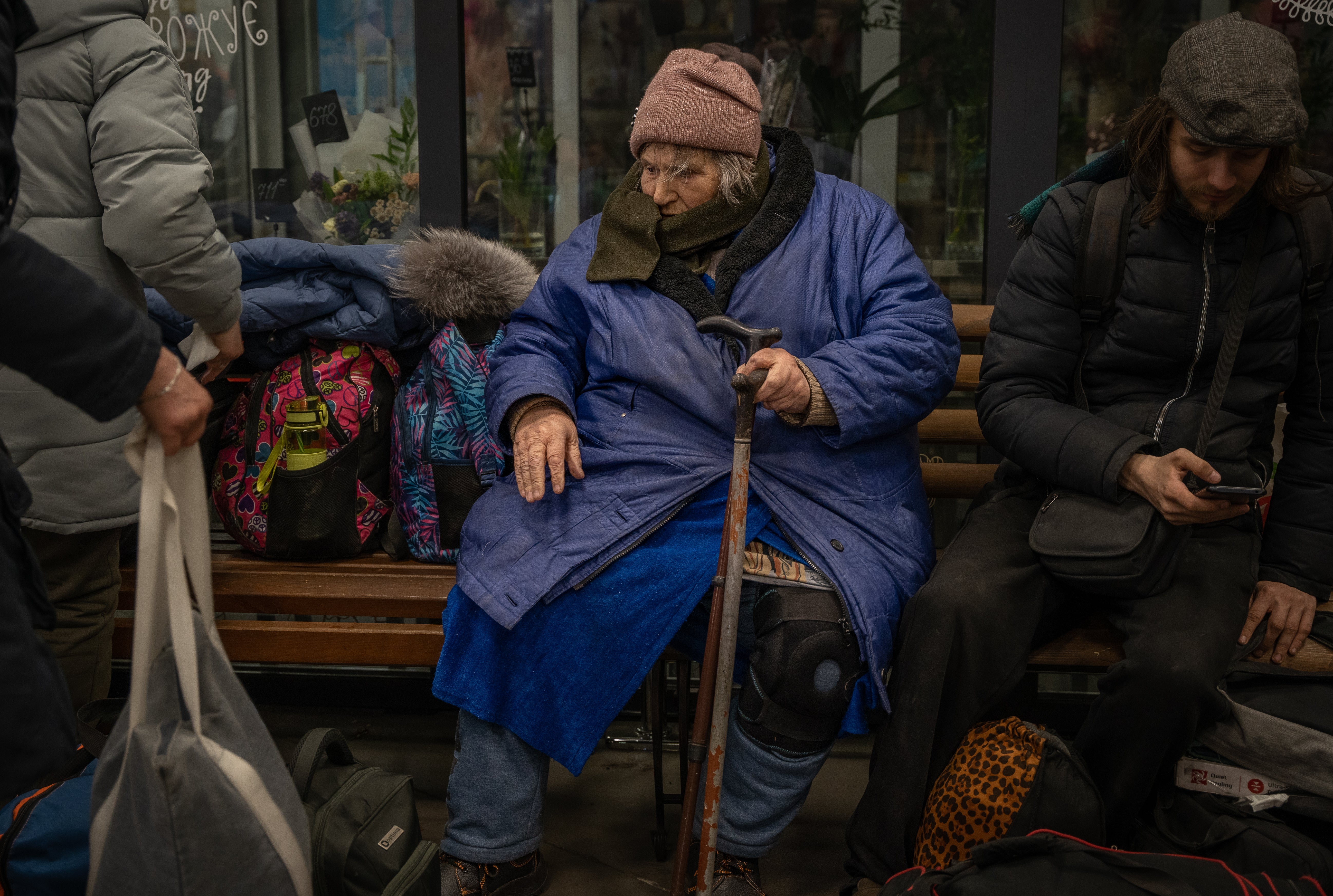The elderly, sick and disabled are unable to escape bombs falling on Ukraine
Every family I spoke to told me they were most afraid for those who have absolutely no way to look after themselves or get to safety, either inside or outside their homes, writes Bel Trew


The elderly, the disabled and the sick who cannot get to their basements in the besieged city of Mariupol are burning alive in their beds when the shelling starts. There are also reports that some have frozen to death, as temperatures have dropped as low as -5C while residents have been without heating or electricity for several weeks.
Others, I was told, are dying of hunger and thirst since no humanitarian supplies can get into the strategic coastal city that is in the eye of Vladimir Putin’s ferocious storm.
And so the most vulnerable people in the city, which has been under siege for a month, are those who are not mobile. They cannot get to the shelters, they cannot move to the safer neighbourhoods, they cannot make the terrifying dash to find water from nearby wells and springs. Crucially, they are unable to tackle the hellish obstacle course to get to the safety of other parts of the country.
Since President Putin launched his bloody war, every attempt by the Red Cross and the Ukrainian government to broker a temporary ceasefire or safe passage into Mariupol has collapsed. Instead, it has been up to civilians themselves to risk everything to evacuate by car, by foot, or – in one instance I saw – by bicycle.
Over the last week, I have spoken to dozens of families who managed to make the unfathomably dangerous journey out of Mariupol to the comparative safety of Zaporizhzhia, 200km away and itself under threat from Russian forces. Their stories are the stuff of the worst nightmares: from watching loved ones blown to pieces in front of their eyes to tapping their radiators for a drop of water for their terrified toddlers.
Every family I spoke to told me they were most afraid for the elderly, disabled or infirm, who have absolutely no way to look after themselves or get to safety, either inside or outside their homes.
“I was called to help one disabled man get to his basement, but the Russians appeared with a Grad missile and started firing, so we never got to him,” said Maksym, who managed to flee with his family three days ago.
Olenda, 60, who was injured, said her neighbour had died because she couldn’t move her disabled son and didn’t want to leave him on his own. “She just laid down across from him, and they were first suffocated from the smoke, and then burned to death,” she said.
Rights group Help Age International has said that Ukraine has the largest percentage of older people affected by conflict in the world – one in every four people is over the age of 60. They warned that more than 2 million older people in the east of Ukraine – where the fighting is the fiercest – are at extreme risk because of the war.
To keep up to speed with all the latest opinions and comment, sign up to our free weekly Voices Dispatches newsletter by clicking here
The International Disability Alliance, meanwhile, says that there are 3 million people in Ukraine with disabilities. They warned that those who are immobile, partially sighted, deaf or hard of hearing cannot get access to the limited safety and assistance that is available. Life for these people in Mariupol would be beyond hell.
There are also major concerns for the sick and those who have long-term conditions. Doctors told me they feared insulin was running out in war-ravaged cities like Mariupol.
Last week, I visited HIV/Aids charities who were warning that supplies of treatment for the virus are low, and that getting treatment and testing to those who need it is near impossible. Ukraine has one of the highest rates of HIV/Aids in eastern Europe and central Asia, and the vast majority of those living with the virus reside in areas now engulfed by fighting. The Alliance for Public Health said that their two staffers in Mariupol were missing – their fate is unknown.
It seems obvious to say, but the only solution to this is a ceasefire and guaranteed safe humanitarian corridors to allow those who are trapped to leave cities like Mariupol. The international community must – right now – do all it can to broker this before it is too late. Too many vulnerable people are at risk.






Join our commenting forum
Join thought-provoking conversations, follow other Independent readers and see their replies
Comments